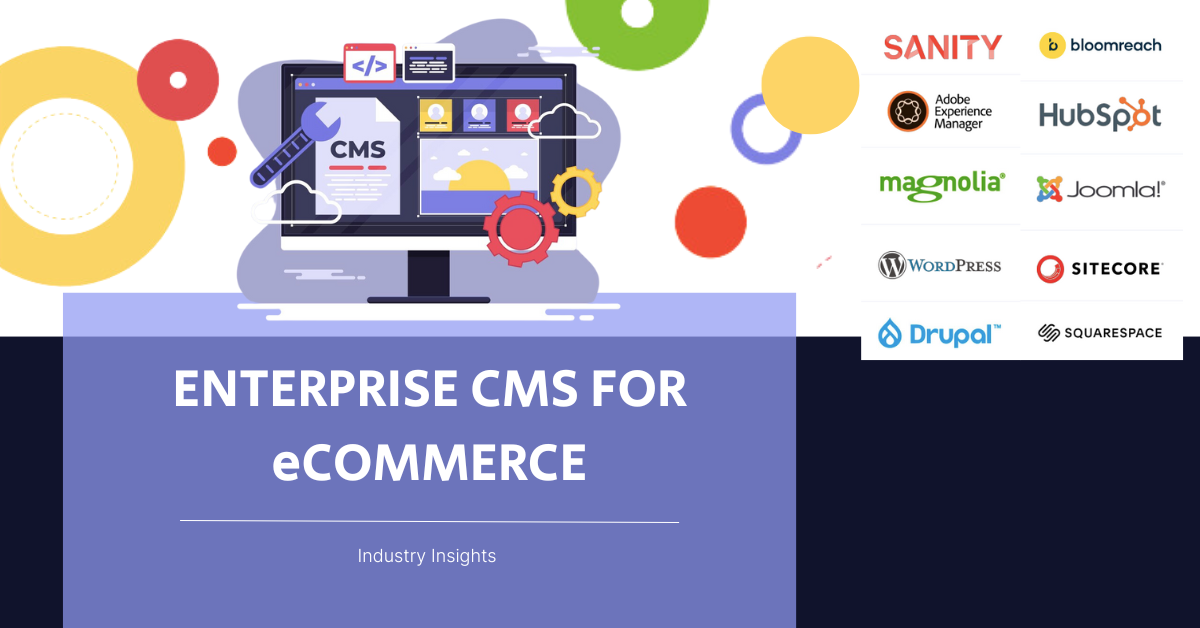Content Management Systems (CMS) deliver seamless, scalable, and feature-rich online shopping experiences. However, choosing the right CMS platform depends on each eCommerce business’s unique needs and goals.
Key trends in the CMS market
- A growing number of active websites that use CMS platforms
- The surging prevalence of cloud computing adoption
- Widespread implementation of CMS across diverse industry sectors
- Rising demand for digital marketing and eCommerce solutions
- Escalating consumer expectations for seamless omnichannel experiences
- Increasing usage of mobile devices
- Continuing the BYOD (Bring Your Own Device) trend due to the popularity of hybrid work models
Composability & headless
The rise in mobile and web applications requires brands to adapt to omnichannel experiences, considering diverse digital channels. Legacy platforms struggle with related to re-platforming, while modern headless CMS proves flexible, cost-effective, and future-proof. Cloud innovation, especially serverless solutions, transforms CMS and digital experience platform (DXP) landscapes, prioritizing cost and security.
Importance of video & audio content
Voice-based search optimization focuses on long-tail keywords and conversational phrases. CMS platforms will need to adapt by analyzing voice search trends and offering features like voice-enabled search directly on websites.
Another key trend in content strategies is balancing visual and textual content. Visual search is gaining prominence, providing users with an accessible way to interpret the real world in real time.
Focus on security, privacy, and regulation
Cybersecurity and data privacy remain paramount for every platform, including CMS. CMS platforms will probably adopt tighter controls around users and groups, emphasizing SSO, MFA, and other security measures for safeguarding users and data amid an increased number of API connections and loosely coupled integrations.
Personalization and customization
Wix and similar CMS platforms employ AI to streamline website design by generating personalized templates based on user preferences. This eliminates manual adjustments, saves time, and makes the process more accessible for non-technical users. Beyond design, AI plays a broader role in CMS development, aiding in SEO, content management, and new functionality development.
AI analyzes web pages, offering recommendations for its search engine optimization and enhancing interaction between backend content management and frontend viewability.
Top 10 CMS platforms for enterprise eCommerce
- Sanity
- Adobe Experience Manager
- Magnolia
- WordPress
- Drupal
- Bloomreach
- HubSpot
- Joomla
- Sitecore
- Squarespace
If you want to access a more in-depth overview of CMS platforms for eCommerce, get your free copy of the guide below! This research can serve as a valuable guide for decision-makers to make informed choices based on their individual needs, ultimately contributing to the growth and success of their eCommerce.
In this research, you will learn more about
- The current state of CMS platforms
- Key trends that will shape CMS in 2024 and beyond
- Top 10 CMS platforms for enterprise eCommerce
- How to avoid CMS performance issues
- Use cases
Interested in more market insights and predictions? Browse our collection of research papers on the latest trends and strategies in different industries. Request research if you don’t find your industry there. Download the research PDFs for free!



Share on: